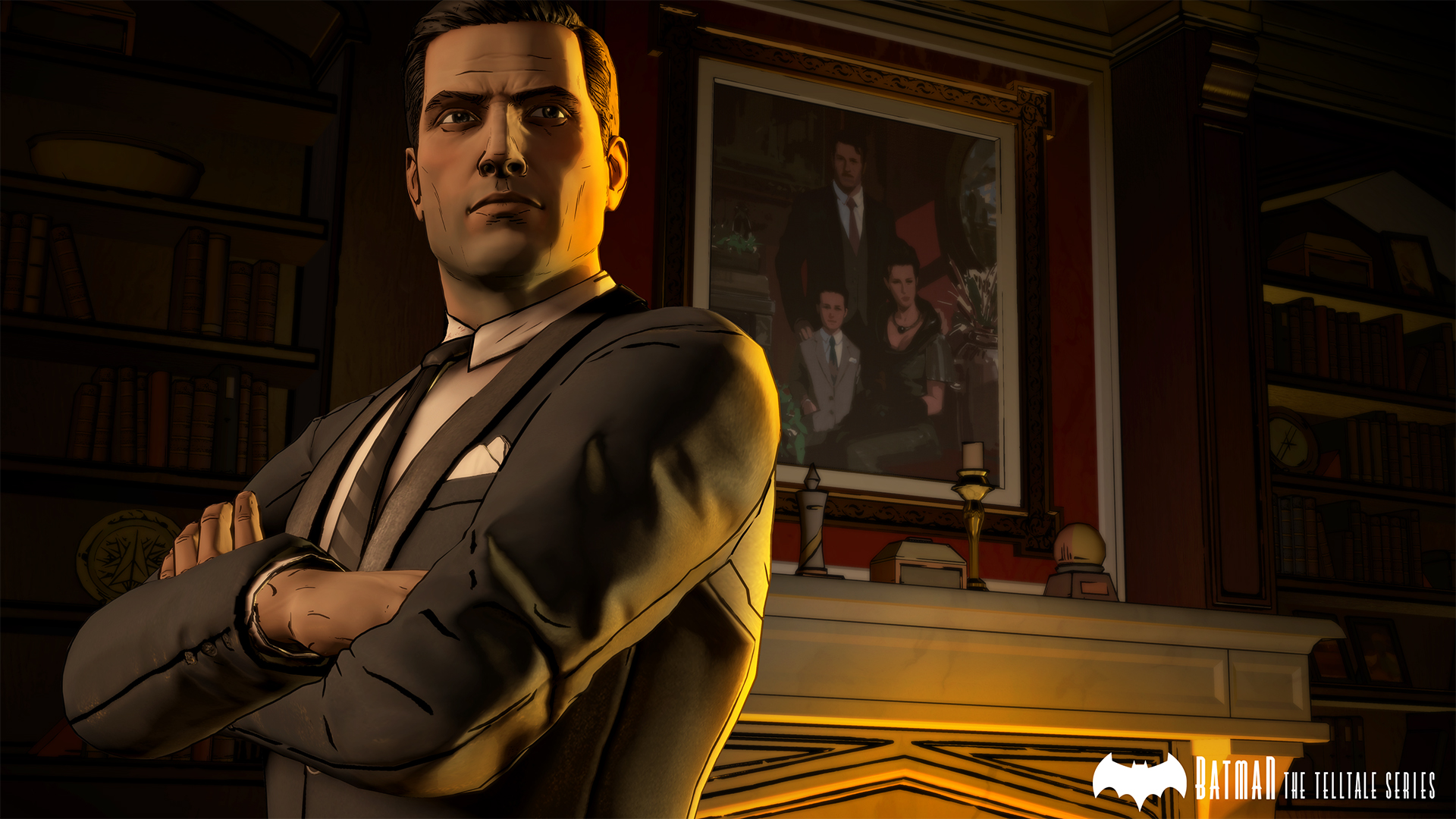Seeing the first thirty minutes of Telltale’s upcoming Batman series is strange when you’ve played nearly everything the studio has put out in the past five years.
What I saw seemed to be a mostly solid game set in one of DC Comics’ most recognizable and beloved settings, complete with the QTE-driven action sequences and dialogue-driven choices.
It all sounds a little bit familiar, doesn’t it?
While I’ve only seen the first thirty minutes of Telltale’s Batman, I’m already seeing the same sort of patterns found in every game I’ve ever played from the studio. We open up with the scene going back and forth between Batman taking out a group of thieves while later, after removing the Batsuit, hosting a campaign party for Harvey Dent as Bruce Wayne.
Batman handles the conflict with his fists on the streets of Gotham, while Bruce Wayne deals with the hand-shaking and politics with the big wigs and even the crime bosses who have a grip on the city. It’s a compelling concept in an isolated sense. Getting to be not only the dark knight of Gotham but also his billionaire playboy public persona and taking on two sides of Bruce Wayne’s life has a ton of potential for both fun action set pieces and tough choices.
However, it bothers me that this game falls into every Telltale trap that the studio has suffered from since The Walking Dead in 2012.

Working within an established and ingrained property like Batman means that, despite the angle of playing as both Bruce and Batman, Telltale’s take on the character fits into some predictable and restricted cliches. Batman doesn’t kill. That’s his thing. But when you play a Telltale game you’re led to believe that you can shape the character into your own through your choices. What I saw of Batman led me to believe that players would only be given the smallest wiggle room to move outside the mold of Bruce Wayne that has been around for decades. In this demo, Batman saves a character who some might believe isn’t worth saving, but there’s no option to shape his outlook on this kind of thing, which again begs the question of what the point of choice is in the first place.
These kinds of half-baked choices have been a major point of contention for me as a Telltale player who is growing tired of the restrictions the studio puts on itself by making games in established franchises. You’re given control of characters who have to either exist between the lines of an ongoing story like Game of Thrones where the scale of what your characters can do can only reach so far without impacting a narrative they can’t have a lasting affecting on; or you play as a character like Michonne who the player can’t control in ways that contradict their established stories within the universe.
Telltale’s Batman falls into the former category. Batman is a character with established principles and morals that I can’t imagine players are going to get to change.

The actual story appears to be suffering from similar issues, because while it isn’t beholden to any specific comic book canon, it doesn’t appear to be doing much to distinguish itself from other Batman stories that have been told over the character’s nearly 80 years of history.
In an isolated sense, Telltale’s Batman will probably be fine. But when compared to everything the studio has done, it seems indicative of a company who has done little to nothing to address complaints that surround its larger body of work.
Batman is set to begin its episodic run in the summer, with Telltale stating that it would be out before the end of the calendar year. When those episodes starting rolling out we’ll see if Batman is a marked improvement for the studio or just further evidence of complacency.


 Buy Now
Buy Now
 Buy Now
Buy Now
 Buy Now
Buy Now
 Buy Now
Buy Now
 Buy Now
Buy Now
 Buy Now
Buy Now















